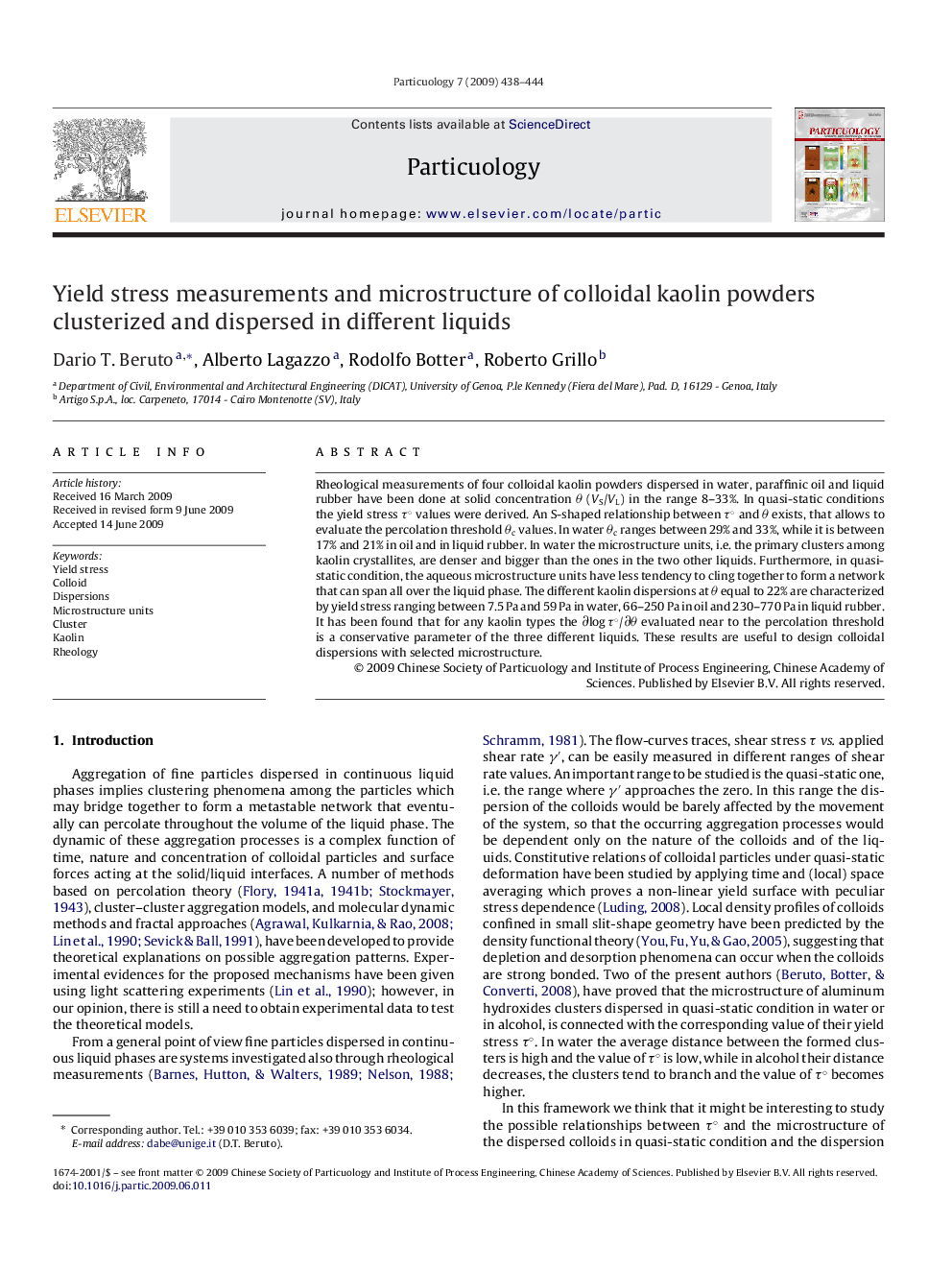| Article ID | Journal | Published Year | Pages | File Type |
|---|---|---|---|---|
| 672390 | Particuology | 2009 | 7 Pages |
Rheological measurements of four colloidal kaolin powders dispersed in water, paraffinic oil and liquid rubber have been done at solid concentration θ (VS/VL) in the range 8–33%. In quasi-static conditions the yield stress τ° values were derived. An S-shaped relationship between τ° and θ exists, that allows to evaluate the percolation threshold θc values. In water θc ranges between 29% and 33%, while it is between 17% and 21% in oil and in liquid rubber. In water the microstructure units, i.e. the primary clusters among kaolin crystallites, are denser and bigger than the ones in the two other liquids. Furthermore, in quasi-static condition, the aqueous microstructure units have less tendency to cling together to form a network that can span all over the liquid phase. The different kaolin dispersions at θ equal to 22% are characterized by yield stress ranging between 7.5 Pa and 59 Pa in water, 66–250 Pa in oil and 230–770 Pa in liquid rubber. It has been found that for any kaolin types the ∂log τ°/∂θ evaluated near to the percolation threshold is a conservative parameter of the three different liquids. These results are useful to design colloidal dispersions with selected microstructure.
